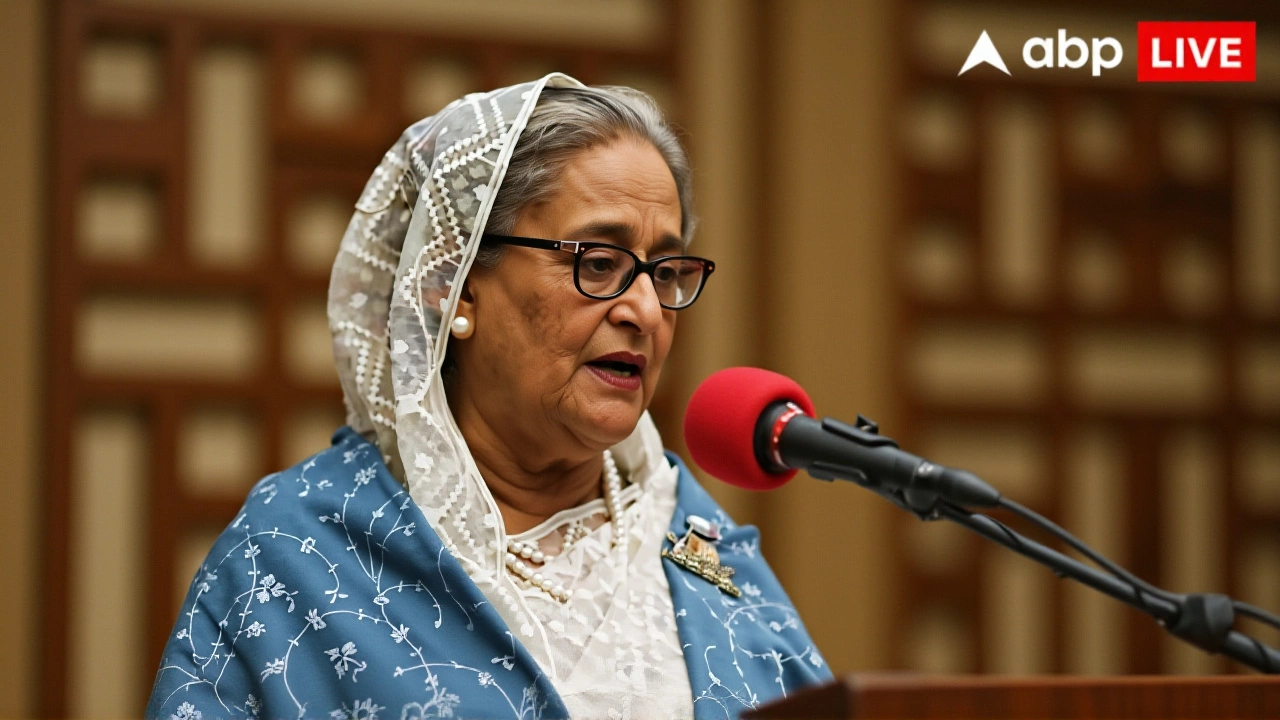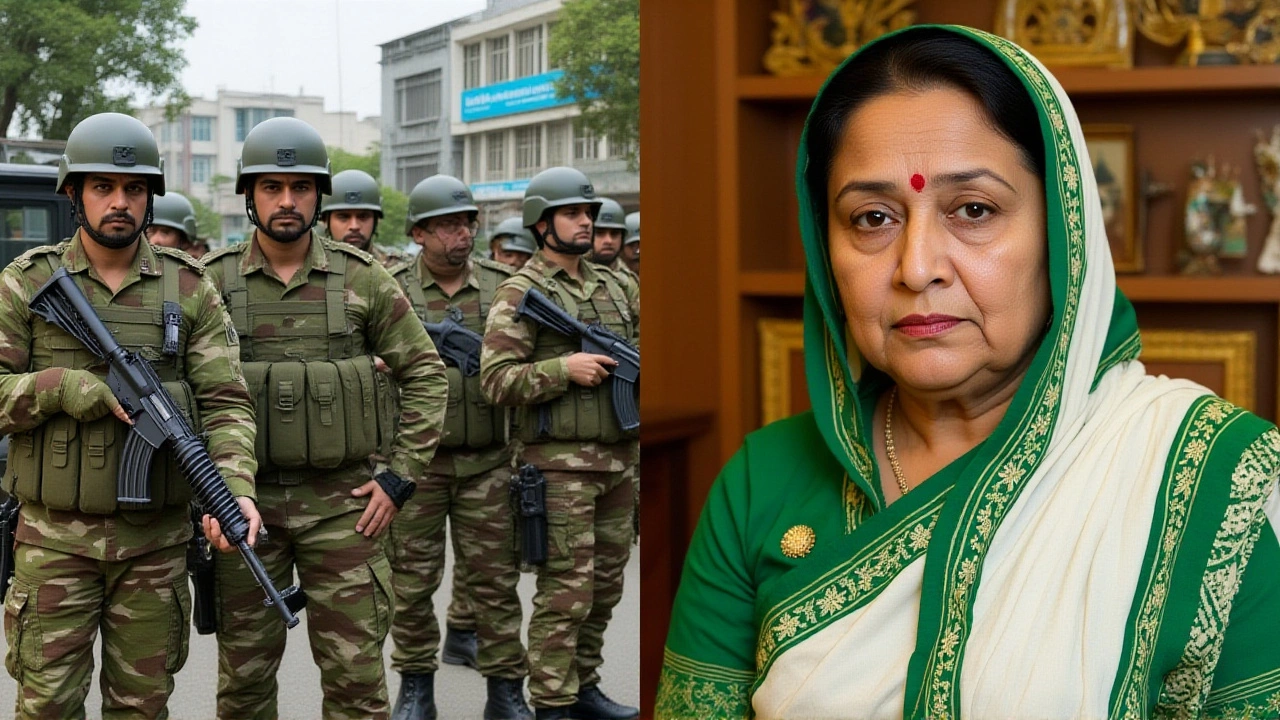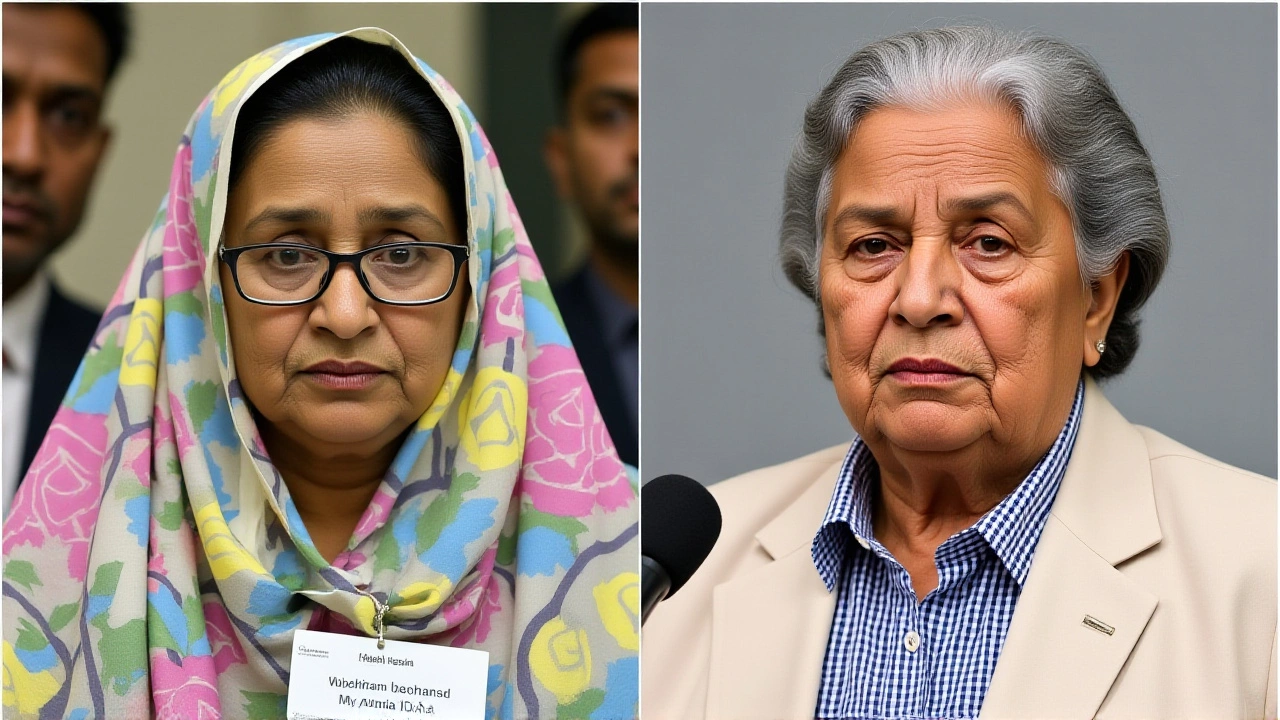On November 17, 2025, the International Crimes Tribunal-Bangladesh handed down a death sentence in absentia to Sheikh Hasina, 78, the deposed prime minister of Bangladesh, for orchestrating what the tribunal called "crimes against humanity" during the July 2024 student protests that rocked the nation. Simultaneously, former Home Minister Asaduzzaman Khan Kamal, 65, received the same punishment, while former Police Inspector General Choudhury Abdullah Al-Mamun, 58, was sentenced to five years after cooperating as a state witness. The verdict, delivered in Dhaka under heavy security, triggered an immediate and formal demand from Bangladesh’s interim government: extradite them to face justice. And they’re not asking politely. They’re citing a treaty — the 2013 India-Bangladesh extradition agreement, amended in 2016 — and saying India has no legal wiggle room.
What the treaty says — and why Bangladesh is insisting
The 2013 extradition treaty between India and Bangladesh was designed to handle serious transnational crimes: murder, terrorism, human trafficking, kidnapping. But the 2016 amendment changed everything. It removed the requirement for India to review evidence before acting. Now, all Bangladesh needs is a court-issued arrest warrant — which it has — and a formal diplomatic request, submitted within 60 days of an emergency arrest. That request, delivered via official channels on November 18, 2025, is now sitting in New Delhi’s Foreign Ministry. And under the treaty’s terms, India is obligated to act. There’s precedent: in 2020, India extradited two men convicted in the 1975 assassination of Sheikh Hasina’s father, Sheikh Mujibur Rahman. That case was politically charged too. But India complied. This time, the stakes are higher.Sheikh Hasina’s last legal lifeline — and the ticking clock
Sheikh Hasina has been living in exile in India since fleeing Dhaka on August 5, 2024, after weeks of nationwide protests left over 300 dead, according to human rights groups. The International Crimes Tribunal-Bangladesh labeled her the "mastermind and chief architect" of the crackdown. She was first convicted in absentia for contempt of court on July 2, 2025, then formally charged on July 10. Hearings began August 3, wrapped up October 23, and the verdict came on November 17. Now, under Section 21 of Bangladesh’s ICT Act, she has until December 17, 2025 to surrender herself to Bangladeshi authorities. Only then can she appeal to the Supreme Court of Bangladesh. If she stays in India past that date? The death sentence becomes final. Irrevocable. No appeals. No reprieve. Legal scholars from the International Commission of Jurists tell Live Hindustan that international law doesn’t protect heads of state from prosecution for crimes against humanity — even if they’ve been granted asylum. The question isn’t legality. It’s politics.
India’s impossible choice
New Delhi is caught between a treaty and a nightmare. Extraditing Sheikh Hasina could inflame tensions with India’s own Bengali-speaking populations in West Bengal and Tripura, where she still commands sympathy. It could trigger protests, destabilize regional politics, and embolden hardliners in Delhi who see Bangladesh’s interim government as illegitimate. But refusing to act? That violates a binding bilateral agreement. It risks setting a precedent that could be used against India in future extradition cases — especially with neighbors like Sri Lanka or Nepal watching closely. India’s Foreign Ministry has said nothing publicly. Not a word. That silence speaks volumes. Diplomats in New Delhi say internal discussions are ongoing, with legal teams reviewing the treaty’s scope, human rights concerns, and the possibility of a political asylum claim — though that’s legally shaky under the treaty’s terms. The U.S. State Department has quietly expressed concern, while China dismissed the matter as "an internal affair" — a move that signals Beijing’s preference for non-interference, even as it quietly pressures New Delhi not to act.The ripple effects across South Asia
This isn’t just about two men in a courtroom in Dhaka. It’s about the unraveling of political norms in South Asia. Bangladesh’s interim government, installed after the collapse of Hasina’s regime, is using the courts to consolidate power. The tribunal’s speed — from charges to verdict in under five months — has drawn criticism from Amnesty International and Human Rights Watch, who question the fairness of trials held in absentia. Yet, the tribunal’s procedures follow Bangladesh’s own legal code. And here’s the twist: the same legal tools being used against Hasina were once deployed by her own government to silence dissent. The irony isn’t lost on regional observers. Meanwhile, India’s reluctance to respond is fueling speculation. Is it fear of backlash? A hidden deal being negotiated? Or simply bureaucratic paralysis? One thing is clear: if India refuses extradition, Bangladesh will likely take the case to the International Court of Justice — and possibly seek sanctions or diplomatic isolation. If India complies, it could face domestic unrest and accusations of betraying a former ally.
What happens next?
The next 30 days are critical. Bangladesh will likely increase diplomatic pressure, possibly through regional forums like SAARC. India’s Supreme Court may be asked to weigh in — though extradition is a political decision, not a judicial one. Meanwhile, Sheikh Hasina’s legal team in India is reportedly exploring every possible avenue: humanitarian appeals, claims of political persecution, even petitions to the UN Human Rights Council. But time is running out. By December 17, 2025, the world will know whether India values its treaty obligations more than its political comfort. And in South Asia, where history and justice are often tangled, that decision will echo for decades.Frequently Asked Questions
Can Sheikh Hasina still appeal if she stays in India?
No. Under Section 21 of Bangladesh’s International Crimes Tribunal Act, the right to appeal is forfeited if the convicted person does not surrender to Bangladeshi authorities within 30 days of the verdict. Sheikh Hasina’s deadline is December 17, 2025. If she remains in India past that date, the death sentence becomes final and irrevocable under Bangladeshi law, with no possibility of review — even by the Supreme Court of Bangladesh.
Why is India under legal obligation to extradite her?
The 2013 India-Bangladesh extradition treaty, amended in 2016, requires India to transfer individuals convicted of crimes punishable by at least one year in both countries. Crimes against humanity qualify, and the treaty no longer requires India to evaluate evidence — only a valid court warrant is needed. Bangladesh provided one on November 17, 2025, and submitted the formal request within the 60-day window. Legally, India has no grounds to refuse.
Has India ever refused extradition to Bangladesh before?
No. In 2020, India extradited two men convicted in the 1975 assassination of Sheikh Mujibur Rahman — Sheikh Hasina’s father — under the same treaty. That case involved political murder, yet India complied without public controversy. The current case is more complex because Hasina was a sitting head of government, but legally, the precedent stands: India honors the treaty, even for high-profile figures.
What happens if India refuses to extradite her?
Bangladesh is expected to escalate diplomatically — possibly filing a case at the International Court of Justice, seeking sanctions through SAARC, or freezing bilateral cooperation on trade, water sharing, or counterterrorism. India could face reputational damage, especially as other neighbors like Nepal and Sri Lanka watch how it handles treaty obligations. Domestically, it may trigger protests in West Bengal and trigger a diplomatic rift with Dhaka that lasts years.
Could Sheikh Hasina claim political asylum in India?
Legally, it’s unlikely. India is not a signatory to the 1951 Refugee Convention and doesn’t have a formal asylum law. Even if she applied, India’s Home Ministry would likely reject it — the 2016 extradition treaty explicitly excludes political offenses from asylum claims when crimes against humanity are involved. International law also holds that crimes against humanity are non-political by definition, making asylum nearly impossible under current frameworks.
What role does China play in this situation?
China has remained publicly silent, calling it an "internal affair" — a classic diplomatic stance to avoid entanglement. But behind the scenes, Beijing is likely encouraging India to avoid extradition, fearing a precedent that could be used against its own dissidents or allies. China has close ties with Bangladesh’s interim government and may be quietly pushing for regional stability over justice, prioritizing its Belt and Road investments in Bangladesh over legal accountability.
